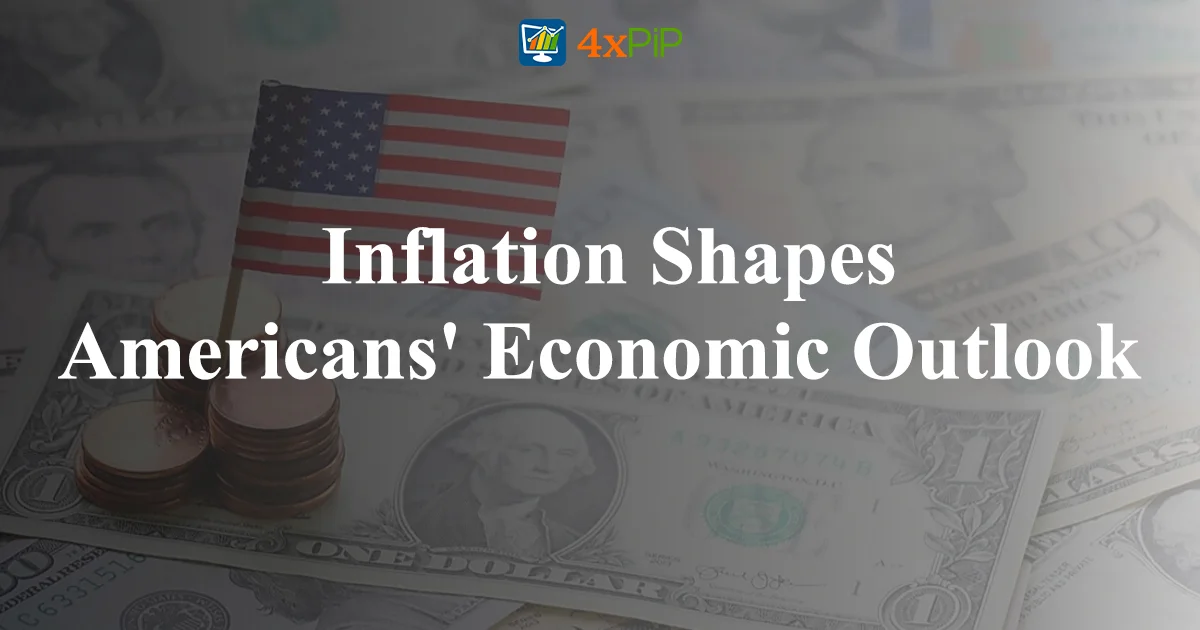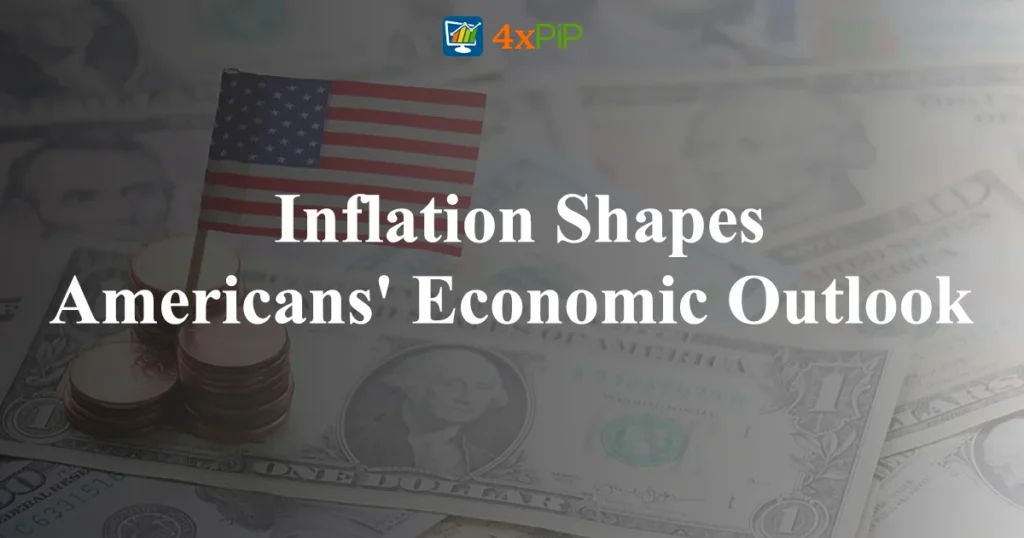In a year of changes, many, like Kyle Connolly, navigate a robust economy overshadowed by the relentless grip of inflation. As families face layoffs, rising prices, and economic uncertainties, the impact of inflation on daily lives has become a palpable concern. Amid such challenges, tools, and resources for navigating these economic shifts, like those offered by 4xPip, become invaluable (For trading tools and EAs, visit 4xPip; contact [email protected]).
The Discontentment Amidst Economic Indicators:
Despite positive indicators such as a strong labor market and appreciating home values, a prevailing sense of discontent blankets the nation. The struggle is evident in everyday decisions, as individuals like Kyle Connolly grapple with the rising costs of groceries and utilities, forcing them to trim back on once-ordinary luxuries.
Consumer Sentiment vs. Economic Reality:
Consumer sentiment, as revealed by the University of Michigan’s survey data, lags significantly behind pre-pandemic levels, indicating that Americans are grappling with high prices that continue to impact their daily lives. Joanne Hsu from Michigan attributes this to the shift from the low inflation, low-interest-rate period of the 2010s to the current economic reality.
Inflation vs. the Job Market:
While a robust job market is expected to uplift economic views, the reality is more complex. Job openings outnumber unemployed individuals, and wages have risen, yet inflation takes precedence in shaping consumer sentiment. The Conference Board’s consumer confidence index, focusing on job market perceptions, paints a rosier picture, illustrating the divergence in people’s economic realities.
Varied Perspectives:
Certain groups, particularly homeowners and those with investments, find reasons for optimism amidst economic challenges. However, lower-income individuals may feel a more significant pinch as higher costs erode pandemic stimulus savings. The resumption of student loan payments further adds to the economic discontent for some.
Social Media Influence and Economic Discourse:
Economists speculate that social media discourse and discussions about a potential recession may contribute to a more negative perception of the economy than warranted. Despite this, consumer spending remains strong, suggesting a disconnect between sentiment and actual financial behavior.
The Path Ahead:
As 2023 comes to a close, economists remain cautiously optimistic about the future, anticipating a potential lowering of interest rates. However, for everyday Americans like Connolly and Marissa Lyda, navigating inflation and maintaining financial stability remains a top priority. Understanding the nuances of inflation, its normalcy, and potential future economic shifts will be crucial as they continue to weather these financial storms.
Summary
In conclusion, the negative influence of inflation on Americans’ economic views is a complex interplay of personal experiences, economic indicators, and broader societal discourse. As the nation looks toward the new year, the challenge is not merely to weather economic storms but to understand and adapt to the changing seasons of financial life.





